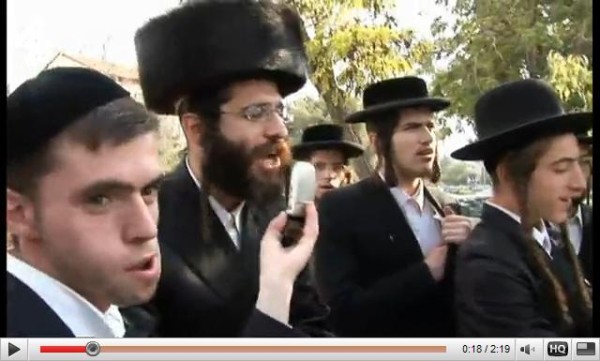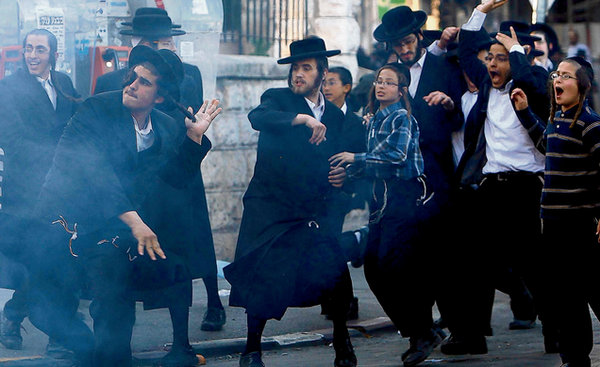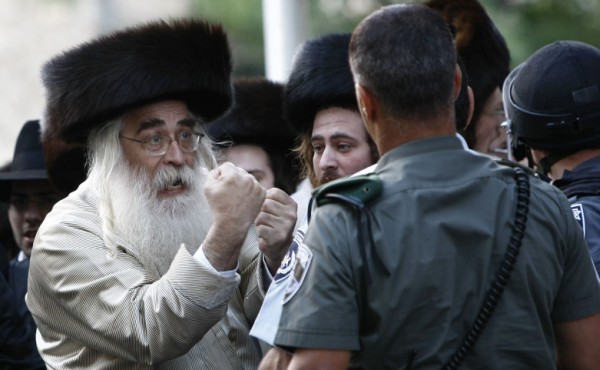We live with the feeling that death is always with us. Whether that feeling is good or not, I don’t know. It is always hanging over us, and here in Auschwitz you see how it became an industry, an industry of death. The Germans started it all and we are perpetuating it.
I thought a lot about whether this March of the Living is good or bad, this death industry…
We perpetuate death, and that’s why we will never become a normal people, because we emphasize death and what happened. We have to remember, no doubt, but we live too much in it, and it is preventing us from being normal people.
~ An Israeli assistant class teacher accompanying a party of Israeli teenagers on a March of the Living trip Poland.There’s a kind of pathological narcisism, navel contemplation, when you are the richest, wealthiest, most successful ethnic group in the United States — you’ve got the world on a platter — and you sit around and you’re talking about anti-Semitism, it’s just kind of shameful I think.
~ Norman Finkelstein
There will no doubt be some Jewish readers who see that line and instantly take offense.
You cannot know, cannot understand, cannot truly grasp what it means to have the experience of being Jewish. Why? Because of the Holocaust. Because this happened to my people, not yours.
To a degree I have to respect that point of view. Indeed, my response to the Holocaust is one that centers on a dread of human brutality rather than what it would mean to identify myself as belonging to a persecuted people.
Yet the thought, “if I was Jewish…” was triggered by watching a remarkable film: Defamation.
This documentary by the Israeli film-maker Yoav Shamir came out early last year and now it can and should be viewed in its entirety at PULSE.
If I were Jewish and a parent and I had a teenage son or daughter who came and asked me, which of these two films do you think it is most important that I watch: Schindler’s List or Defamation? I’d say: it depends whether you prefer to be told about or to reflect upon who you are.
Yoav Shamir’s film, at turns profound and irreverent, is above all a call for reflection on the meaning of Jewish identity. Among its many insights is that for many secular Jews the Holocaust now serves as a buttress against a loss of identity.
Perhaps most disturbing is to witness young Israelis going through an indoctrination process in which the Holocaust and the specter of anti-Semitism are being used to keep fear and hatred alive.
In the following segment, teenage Israelis are being prepared for a trip to Poland where they are told they will need the protection of secret service agents and should avoid contact with the locals:
Later in the film, Shamir talks to a girl about her reaction to visiting Auschwitz and she describes the hatred it evokes. She says:
When you see it you say: ‘I want to kill the people who did this!’…
Who would you like to kill?
Who would I like to kill? All of them…
Who is all of them?
The Nazis, our enemies who did this.
But you know they are dead…
Yes, but they have heirs, they may be different but they’re there.
Never forgive, never forget — an expression that has been turned into a mantra as though this is the only way of remembering and honoring the dead. In reality it has become a chain of anger, anchored to the past.
Ultimately the question of what it means to be Jewish is a question whose answer matters as much to the non-Jew as it does to the Jew.
If either believes that this identity is circumscribed by an unbridgeable divide then we will indeed have an unending conflict.



